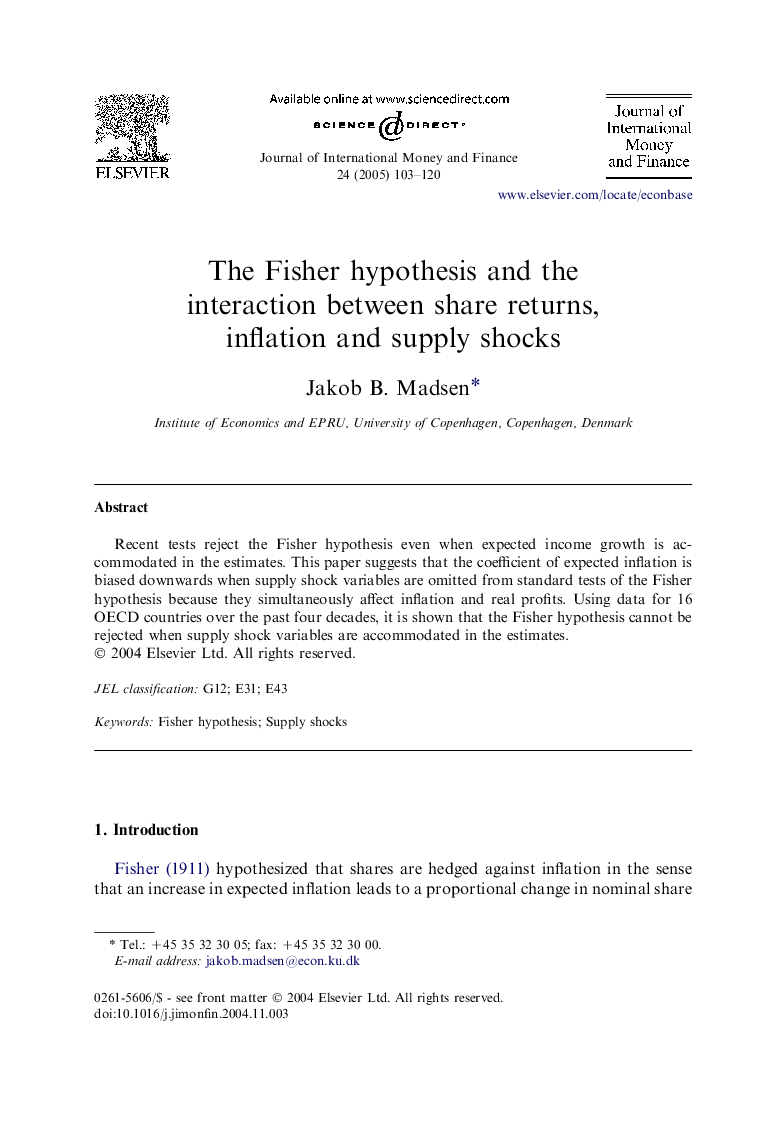| Article ID | Journal | Published Year | Pages | File Type |
|---|---|---|---|---|
| 10477810 | Journal of International Money and Finance | 2005 | 18 Pages |
Abstract
Recent tests reject the Fisher hypothesis even when expected income growth is accommodated in the estimates. This paper suggests that the coefficient of expected inflation is biased downwards when supply shock variables are omitted from standard tests of the Fisher hypothesis because they simultaneously affect inflation and real profits. Using data for 16 OECD countries over the past four decades, it is shown that the Fisher hypothesis cannot be rejected when supply shock variables are accommodated in the estimates.
Related Topics
Social Sciences and Humanities
Economics, Econometrics and Finance
Economics and Econometrics
Authors
Jakob B. Madsen,
